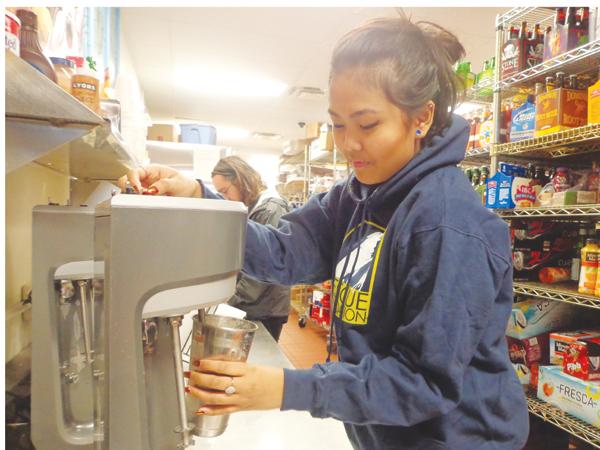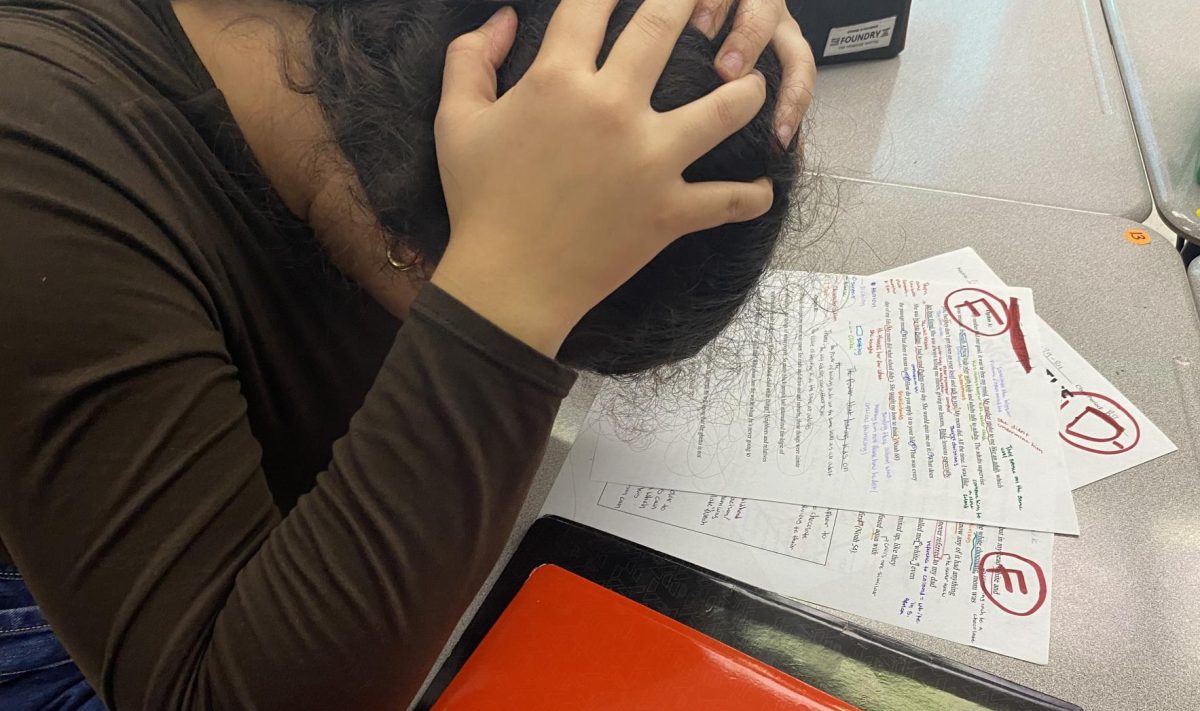
“Getting a job” is one of the most common phrases that pop up in conversations once we get into high school and it can be one of the most difficult, but rewarding things to accomplish.
In the Annandale community, students find that the most important thing in securing employment is who they know. The community itself is the strongest impact on finding work, and it is the beginning of students’ real life network of contacts.
“Getting jobs and anywhere in life is really dependent on who you know,” senior Oscar Sahonero said.
Sahonero works at SB Auto Service, a family business. He first started working retail junior year for another servicing organization after being referenced by his family, and then transitioned directly into his family’s company.
Other students have been working since before high school because their community had needs, instead of using their community to meet their needs.
“I’ve worked [as a babysitter] for many families these past seven years. I love working on my own schedule and dictating my pay. Working close in the neighborhood is really nice,” senior Elizabeth Waugh said. “If a family needs a sitter, there is usually always one to call on in the neighborhood, since everyone knows each other well.”
Waugh was part of incorporating a child care network that includes other AHS students. Babysitting may be one of the most common forms of youth employment, but Waugh plans to use her funds creatively.
“I pay for my own clothes and some of my food, but a lot of the money I’ve saved will go toward equipment to travel and volunteer during my gap year,” Waugh said. She has about half of what she needs so far to travel to Africa and India. Waugh extremely loves children, and will continue to be an au pair (foreign nanny) during her travels to make more money.
As with anywhere else, finances and making more money are constant needs around AHS.
“I help my family pay rent and I’m trying to save up enough money for college. I’m looking for a second job as well, as all the money from auto servicing is for college and necessities,” Sahonero said. He plans to go to NVCC for two years and transfer to George Mason University.
“I think my situation is very common; a friend, Joon Lee, an IB Diploma candidate, is going to NVCC too and then transferring to Johns Hopkins,” Sahonero said.
Naturally, with school and life going on, students accept that working can lead to tiresome days and tons of fatigue.
“It can stress me out a lot,” Waugh said. “Caring for the child of an ER nurse and a doctor [was one example]. There have been school nights where I’ve stayed until 1 a.m. There was a day where I helped 10 families during labor day weekend,” Waugh said.
Waugh plans to attend St. Andrews University in Scotland, an hour away from her extended family and thinks that working is a strong stepping stone to adulthood.
With all that is going on in their teenage lives, learning to manage their priorities is a strong aspect of working, which is worth the stress.
“I think that high schoolers should have jobs if they want them, as long as they can keep up their grades,” senior Ulugbek Israilov said. “They should never put their job over their education. It’s not about having money now, but all about having money in the future.”
Colleges are increasingly looking for young adults who take the initiative and work. “I learned financial and personal responsibility and how to advocate for myself,” Career Center specialist Robin Roth said. All these skills are invaluable.
Working can allow teens to feel like they contribute to their environment, their families, and their greater community. Having a job is a milestone in many people’s lives, and students especially take a lot from their work, whether it is money or memories.
“I remember when I had my very first customer, it was overwhelming,” Sahonero said. “Since I get paid from commision, I was really happy to use what I knew. I gave her [the customer] a great carwash, I was so excited.”
The experiences that students can remember can stay with them their whole lives.
“My favorite memory working was when a kid I had being taking care of since he was a month old, said ‘I love you,’ when his family moved away when he was three.”
After these seniors graduate, there will be more kids to take their place, take their jobs, learn new skills and make new memories.
Realizing what he can benefit from working from his peers, Israilov is taking the baby steps in order to get his first job. He has three local leads, and is very optimistic.







